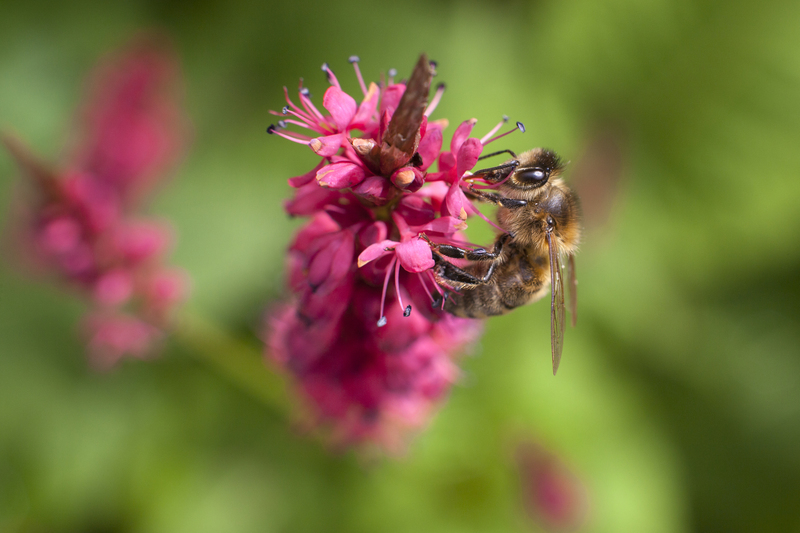Winter Defense Techniques for Your Precious Garden
Posted on 26/09/2025
Winter Defense Techniques for Your Precious Garden
When the temperature drops and frosty winds begin to blow, your garden is at risk. Winter defense techniques for your precious garden are essential to protect both your plants and the investment of time and care you've given them throughout the year. In this comprehensive guide, you'll discover practical, expert-recommended winter garden protection strategies to keep your cherished plants thriving through the coldest months.

Why Winter Protection Matters for Your Garden
Winter isn't just about colder temperatures; it brings freezing rain, snow, frost, wind, and even fluctuating thaws and freezes. All these factors can wreak havoc on both hardy and delicate plants alike. Protecting your garden during winter helps minimize damage, maintain soil health, and ensure that your landscape reawakens vibrantly in spring. Let's learn how you can preserve your precious garden through winter's toughest challenges.
Understanding the Risks: Winter Garden Challenges
- Frost Damage: Sudden frosts can damage leaves, bark, and root systems.
- Dessication: Harsh winter winds can dehydrate plants, especially evergreens.
- Soil Erosion: Heavy snow and rain can wash away valuable soil and nutrients.
- Rodents & Pests: Animals may bark-chew or burrow seeking warmth and food.
- Structural Damage: Snow and ice buildup can break branches and crush stems.
Preparing Your Precious Garden for Winter
1. Clean-Up and Pruning
Begin your defense plan with a thorough autumn cleanup. Remove dead leaves, spent annuals, and any diseased plant matter. Prune unhealthy or overly long branches which are prone to breaking under heavy snow. By reducing the material that can harbor fungi and pests, you'll give your garden a healthy head start into the next season.
2. Soil Care: Feeding and Mulching
Healthy soil is the backbone of winter garden protection. Late autumn is the ideal time to:
- Test and amend the soil with compost or well-rotted manure for improved structure and nutrients.
- Apply a 2-4 inch layer of organic mulch (such as bark, straw, or leaves) around your plants. Mulching insulates delicate roots, prevents soil erosion, and shields against temperature extremes.
3. Winterizing Vulnerable Plants
Some plants fare better in the cold than others. Take extra steps for:
- Tender perennials (like dahlias and cannas): Dig up and store tubers in cool, dry places.
- Container plants: Move pots to sheltered spots or insulate with bubble wrap and mulch.
- Young trees and shrubs: Protect trunks with tree guards or burlap to fend off rodent damage and sunscald.
4. Proper Watering Before the Freeze
Late-season watering ensures plants go into winter well-hydrated, helping roots survive winter's drying effects. Focus on evergreens and newly planted trees or shrubs, since they're especially susceptible.
5. Strategic Use of Covers and Cloches
When an unexpected frost threatens, you can quickly shield your precious garden with seasonal covers like:
- Row covers and frost blankets: Offer warmth without smothering plants.
- Burlap wraps: Ideal for delicate shrubs and hedges.
- Glass or plastic cloches: Protect small plants and tender seedlings.
Advanced Winter Defense Techniques for Your Precious Garden
Windbreaks and Shields
Wind is a major factor in winter plant loss due to dessication. Reduce wind exposure by:
- Installing temporary windbreaks such as burlap screens, fences, or strategically placed evergreen branches.
- Positioning potted plants behind structural shields like walls or sheds.
Avoiding Snow and Ice Damage
Snow can insulate plants, but wet, heavy snow and ice cause breakage. To defend your garden:
- Gently brush off heavy snow with a broom, avoiding rough movements.
- Never break off ice; let it melt to avoid injuring branches.
- Tie or stake upright shrubs and young trees to prevent splitting.
Dealing With Rodents and Pests
When food becomes scarce, rodents can target your garden. Try these tips:
- Use tree guards to protect bark from voles or rabbits.
- Remove mulch from within a few inches of trunks to discourage hiding spots.
- Keep bird feeders away from garden beds to avoid attracting unwanted pests.
Cold Frames and Greenhouses
Want to give your plants an extra advantage? Consider:
- Cold frames: Allow you to overwinter herbs, salad greens, and seedlings with minimal effort.
- Greenhouses: Provide the ultimate in frost protection for your most precious plants.
- DIY options: Repurpose old windows or clear plastic sheets to construct simple plant shelters.
Specialized Winter Protection for Garden Types
Vegetable Gardens
Your vegetable patch needs some extra care:
- Harvest remaining crops before the first deep freeze.
- Plant cover crops (like winter rye or clover) to protect soil and add nutrients.
- Mulch deeply over root vegetables for extended harvests.
Ornamental Gardens and Flower Beds
For showy flower beds:
- Cut back perennials after their foliage dies down.
- Divide and replant crowded bulbs before the soil freezes.
- Add evergreen boughs for insulation and visual interest.
Rock Gardens and Alpine Plants
Many alpine plants prefer drier winter conditions. Avoid excessive mulch that traps moisture, and consider using a gravel mulch for improved drainage.
Common Mistakes to Avoid in Winter Garden Defense
- Leaving covers on too long: This can encourage mold and restrict airflow.
- Over-mulching: Can smother plants and harbor pests.
- Neglecting newly planted trees: Young roots need extra insulation.
- Forgetting irrigation: Winter winds dry out plants even when temperatures are low.
Tips for Monitoring and Adjusting Your Techniques
Regularly check your garden throughout the winter season. If you see plant stems turning black, bark damage, or persistent wilting, adjust your winter protection strategies accordingly. Every garden is unique--stay observant and responsive to changes.
Benefits of Proper Winter Defense for Your Garden
- Healthier plants in spring: Strong recoveries and better blooms.
- Reduced pest problems: Fewer overwintering insects and diseases.
- Soil conservation: Maintains fertility and structure.
- Time savings: Less replanting and maintenance come spring.
Winter Gardening: Embracing the Quiet Season
Winter defense techniques for your precious garden do more than just protect! With the right strategies, you can continue to enjoy your landscape's beauty--even in the coldest months. Try adding bird feeders, winter-flowering shrubs, and evergreen accents for year-round interest.
Planning for Next Year
As the season winds down, take notes on which winter garden protection methods worked best. Consider keeping a gardening journal to record weather events, plant responses, and timing of your protective actions. This information will help refine your strategies for an even healthier garden next winter.
Conclusion: Ensure Year-Round Beauty and Health
In summary, winter defense techniques for your precious garden are vital for keeping your plants--and your investment--safe through harsh weather. From mulching and windproofing to pest control and specialized shelters, every action you take now supports vibrant growth in spring. Begin your preparations early, stay vigilant, and you'll reap the rewards of a garden that not only survives, but flourishes year after year.

Frequently Asked Questions: Winter Defense for Your Precious Garden
Q: When should I start winterizing my garden?
A: Begin fall cleanup and mulching after the first light frost but before the ground freezes, usually in late autumn.
Q: Do all plants need the same level of winter protection?
A: No--focus on the most vulnerable, such as young trees, tender perennials, and container plants. Hardy natives often need less protection.
Q: Is it possible to garden indoors during winter?
A: Absolutely! Try growing herbs and greens on sunny windowsills or in small greenhouses for a fresh harvest all winter.
Q: Can I compost during winter?
A: Yes, but your compost pile may slow down. Keep turning it and add a mix of green and brown materials as usual.
Start Your Winter Garden Preparation Today!
Don't let winter catch you off guard. Use these expert winter garden defense strategies to ensure your valuable plants withstand the cold months and return stronger than ever. With a proactive approach and a little care, your precious garden will thrive--season after season.

